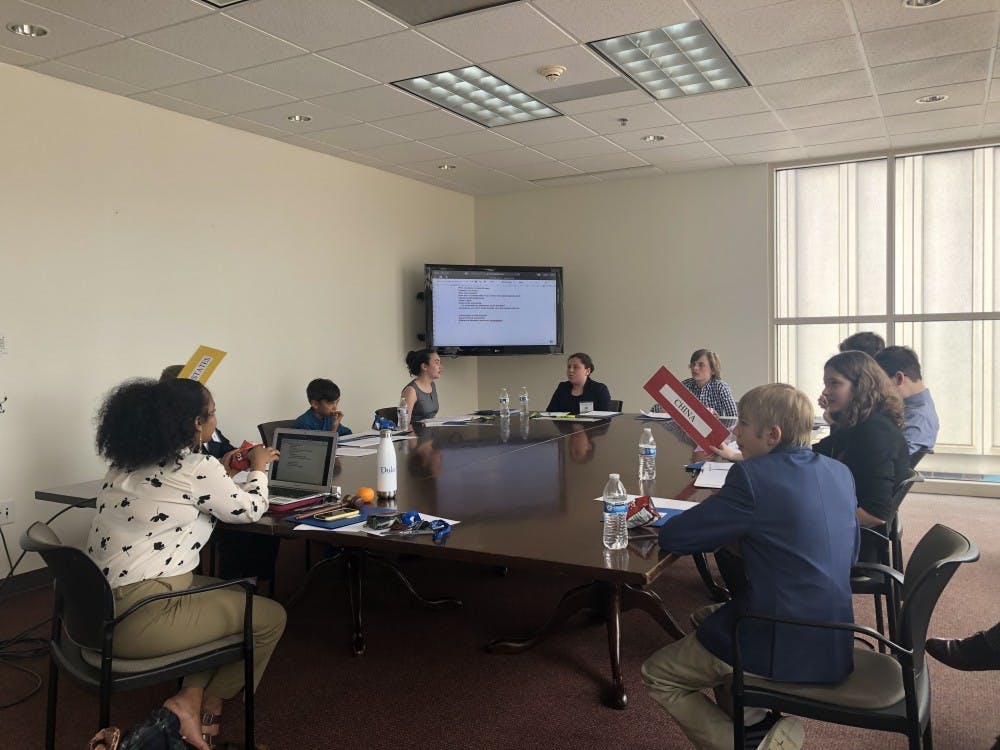Approximately 100 middle school students spent nearly the entire day at UNC presenting, debating and reaching a consensus during the Triangle Model United Nations Conference held in the Student Union on Monday.
TRIMUNC was founded in 2012 by Kaori López, a Model United Nations adviser at Duke School, because no middle school conferences were offered in North Carolina. Because of this, she had to take her students to a conference in Dallas. She knew that creating an annual conference in North Carolina would make attending conferences more accessible to students.
In its eighth year, TRIMUNC is now led by co-directors Elise Ashkin-Baker and Sumana Goli, two of López’s former students.
In their fourth year of organizing the conference together, Ashkin-Baker and Goli each have more than 10 years of Model UN experience, as they decided to stay after they began in middle school.
“It definitely took me out of my middle school bubble,” Ashkin-Baker said. “I all of a sudden realized that there was human trafficking going on and there were kids dying of diarrheal diseases, and I was writing about all of these things and trying to solve these problems, so it really takes you out of your own bubble, out of your own community and opens you up to the wider world.”
The conference is a simulation of the United Nations that offers eight committees students can serve on, such as the World Health Organization and the Commission on the Status of Women. Each student is assigned a country, which they then represent from the country’s point of view based on prior research. They must negotiate to reach a resolution every member of the committee can agree on by the end of the conference.
Not only is this one of the few middle school conferences offered in North Carolina, it is also unique from others.
While it is not standard for Model UN conferences to have themes, this conference always selects one to keep discussions focused. This year’s overarching theme was "Emerging Technologies and Innovative Solutions" because the recent surge of advanced technology raises important questions about the appropriate and ethical incorporation of technology in people’s lives.
“I feel like a lot of these topics are missing from the curriculum in general, so you are learning things you wouldn’t really learn otherwise,” Goli said.




